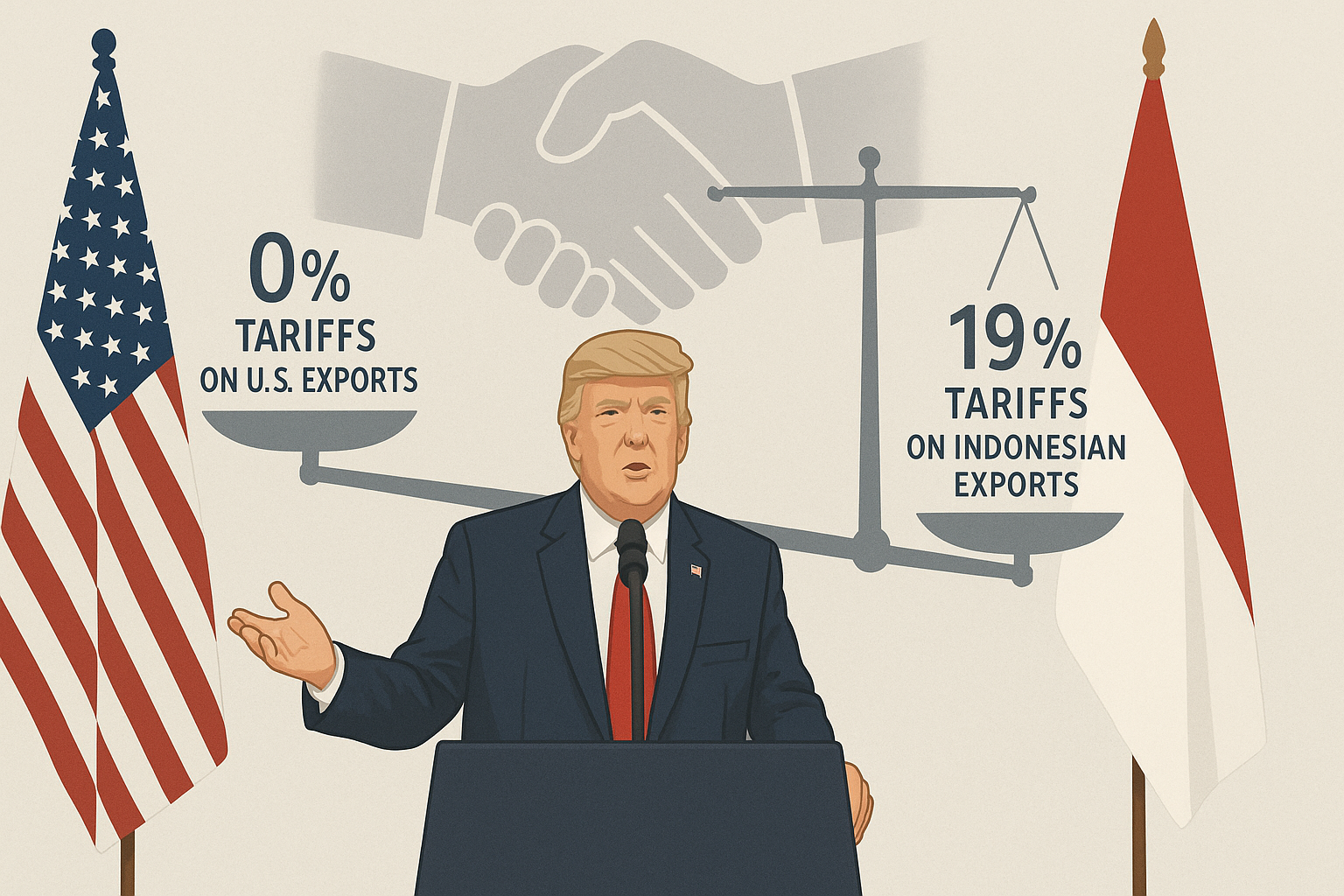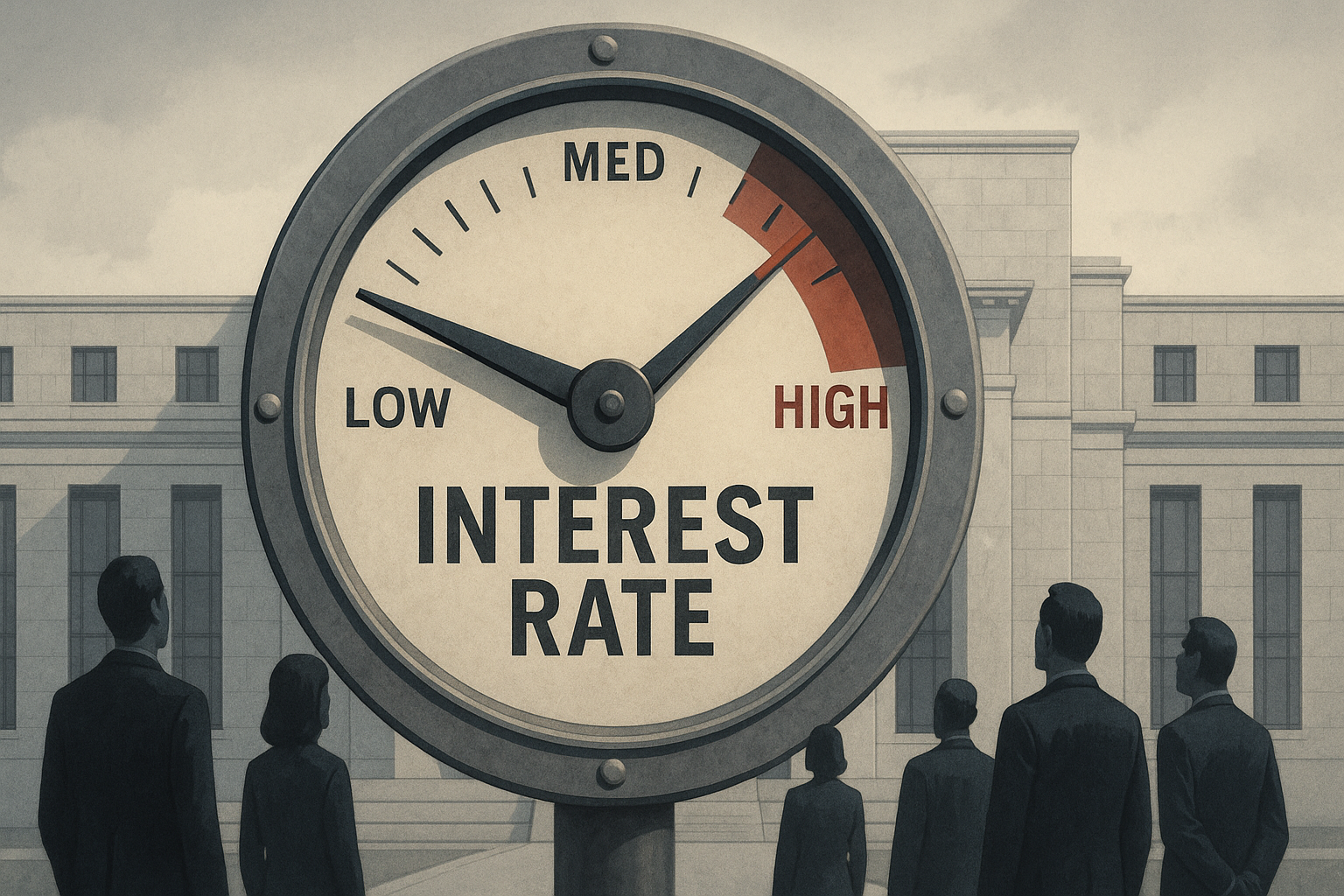Trade deals bore most people to tears. The endless haggling over tariff schedules and regulatory frameworks makes for terrible dinner conversation. But sometimes—rarely—a trade announcement perfectly captures a leader's entire worldview in one tidy package.
Donald Trump's Indonesia trade proclamation? It's exactly that kind of revealing moment.
The former president took to Truth Social this week to trumpet what he framed as an extraordinary win: Indonesia will supposedly slash tariffs on 99% of American goods while accepting a hefty 19% tariff on their exports to the U.S., plus commit to over $10 billion in American purchases.
If that sounds suspiciously one-sided... well, that's precisely the point.
I've covered Trump's trade approach since his first campaign, and this announcement perfectly aligns with his long-established "real estate developer" negotiating playbook. The formula is consistent: approach every international deal as zero-sum, push aggressively for lopsided terms, then declare total victory regardless of what actually transpired.
The stark asymmetry of this arrangement—they cut to zero, we tax at 19%—perfectly encapsulates Trump's foundational belief that trade deficits represent America "losing" at commerce, a position most economists find simplistic but many voters find intuitive.
But here's where things get interesting.
Indonesian officials haven't exactly rushed to confirm these specifics. In fact, their silence speaks volumes. When I reached out to contacts at Indonesia's trade ministry yesterday, responses were noticeably guarded. One official, speaking on background, would only say discussions "remain ongoing" with various potential partners—hardly the language of a done deal.
The timing raises obvious questions. With November's election looming and economic anxiety ranking high among voter concerns, demonstrating dealmaking prowess fits perfectly into campaign messaging. Trump's base has consistently responded to his "America First" trade positioning, after all.
What we're witnessing might best be described as "announcement-based diplomacy"—where publicly declaring a deal becomes almost as strategically valuable as the deal itself. Trump deployed this tactic repeatedly during his administration. Remember those infrastructure weeks that never quite materialized? Or the constantly "imminent" Middle East peace plan?
Look, America's historical approach to trade agreements deserves scrutiny. Many deals have indeed benefited multinational corporations while creating painful adjustment costs for manufacturing communities. But there's a reasonable middle ground between naive free trade absolutism and treating every negotiation like a hostile takeover.
Trade, at its best, creates mutual benefit through comparative advantage. (Sorry for the brief economics lecture, but it matters here!)
The Indonesia announcement also betrays a particular theory of American leverage. With 270+ million people and a rapidly modernizing economy, Indonesia represents an important market and strategic partner in Asia. But Trump's approach assumes America's position as global consumer of last resort gives Washington overwhelming power to dictate terms—a thesis that's being tested as alternative economic partnerships develop globally.
Even heavily asymmetric arrangements can potentially benefit both sides in specific contexts. Indonesia might calculate that these tough terms (if they're real) beat facing even higher barriers with no agreement at all. Sometimes a suboptimal deal beats no deal—something any developer who's ever been caught in a financing crunch understands viscerally.
The administration in Jakarta might also be playing a longer game, making tactical concessions while pursuing strategic objectives around regional influence. The geopolitical chessboard rarely allows for simple winning and losing.
Anyway, this Indonesia announcement—whether substantive or primarily symbolic—offers a perfect case study in Trump's economic philosophy: trade as competition rather than collaboration, deals as dominance displays rather than partnership frameworks, and announcements as achievements in themselves.
Will this approach strengthen America's economic position or merely reshuffle how global trade functions? That's the ten trillion dollar question that markets—and voters—will ultimately decide.



